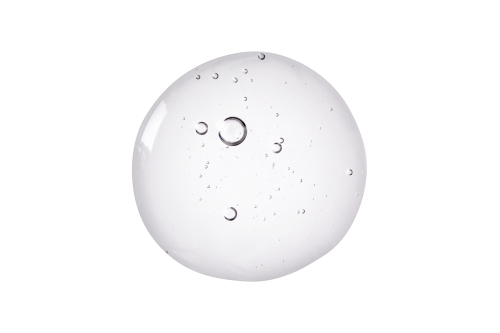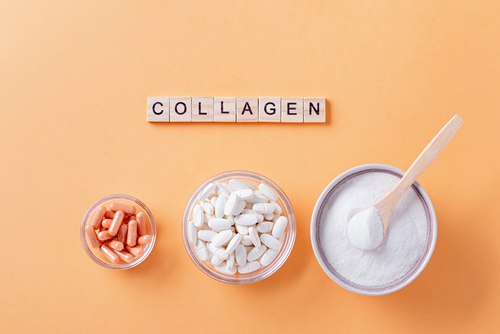The choices presented to us in this new age of nutrition can be overwhelming – and collagen peptides are no different.
With hundreds of brands and numerous varieties on the market, how can we be sure we’re getting the right product for us?
Fortunately, with a little bit of background knowledge and some careful comparison, you can make an informed decision and find the best collagen peptide product for you and your individual needs. In this guide, we’ll go over what collagen peptides are, their benefits, the different types of collagen peptides out there, and how to compare them to find the one that’s the most suitable for you. Ready to get started in selecting the healthiest option for your needs? Let’s go!
How Do You Compare Collagen Peptides?
Start by comparing the sources of collagen used in the product, such as bovine, porcine, or marine. Additionally, check the ingredient list to see if any other beneficial ingredients are added and review the available flavors that are offered.
Understanding Collagen Peptides
Understanding collagen peptides is the foundation of understanding how to compare them accurately. Collagen peptides are naturally occurring proteins made up of a unique combination of amino acids — specifically, glycine, proline, hydroxyproline, and arginine. They play an instrumental role in helping the body produce connective tissues like ligaments, tendons, skin, and bones. Many people today supplement with these peptides for their health benefits which include supporting joint and bone health, reducing signs of aging, boosting muscle growth and repair, improved digestion, and more.
When it comes to taking advantage of the benefits of supplementation with collagen-containing products, there are several considerations to take into account. First and foremost is quality — what is the source of the collagen peptides? When choosing a product it is important to make sure it’s from a NON-GMO verified source that produces the highest quality standards and have research-backed evidence for effectiveness. Additionally, consider whether you’re looking for support for your joints or looking for beauty benefits like glowing skin; depending on your goals you may want to look at both animal-based or plant-based collagen peptides as they can provide different types of support.
Now that we’ve taken a deeper dive into understanding collagen peptides and some of the considerations to take into account when selecting the right product for you — next up is exploring some of the various sources and types available so you can pick the right one for you.

Essential Summary Points
Collagen peptides are proteins made up of the amino acids glycine, proline, hydroxyproline, and arginine. Supplementing with collagen peptides can provide many health benefits, such as supporting joint and bone health and boosting muscle growth and repair. When choosing a product it is important to look for one from a NON-GMO source that meets high quality standards and has research backing its effectiveness. Additionally, consider what kind of support you are looking for when selecting a collagen product; animal-based or plant-based collagen peptides provide different types of benefits.
Sources and Types of Collagen Peptides
Now that you understand the role of collagen peptides in the body, it is important to consider the sources and types of collagen peptides out there. Collagen peptides are derived from animal or plant sources. Animal-sourced collagen peptides include bovine (from cows), porcine (from pigs), and marine or hydrolyzed fish collagen. Plant-sourced collagen peptides come from collagens derived directly from fruits and vegetables like mangoes, oranges, apples, and spinach.
When choosing a source for your collagen peptides, debate exists on which is more effective– animal-based or plant-based. Animal-based products claim more varied health benefits due to their high absorbability in the body and higher content of amino acids than plant products. However, recent studies suggest that many plant-sourced peptides offer comparable benefits to animal sources while also providing additional vitamins, minerals and antioxidants found only in plants.
It is up to you to decide which type of collagen is right for you based on your preferences and needs. Regardless of which source you choose, be sure to look for products that have been tested for purity, potency, and safety by third party laboratories before making a purchase decision. This way you can ensure you are receiving a product free from contaminants and produced in a safe environment. From there you can then begin assessing quality and safety as part of your comparison process so as to find the most suitable collagen peptide product for your unique needs.

Comparing Quality and Safety of Collagen Peptides
Once you have decided on the source and type of collagen peptides you want to use, it is important to compare the quality and safety of collagen peptides. Quality is a key factor in determining whether collagen peptides are going to be beneficial to your health in the long run, as inferior or contaminated products could lead to undesirable side effects. Also, you should be aware of potential allergens or other active ingredients that could be harmful to your health if consumed.
In terms of quality, some noteworthy considerations include manufacturing practices, equipment specifications and facilities used for production and storage of the product. Look for products that have been tested for purity and potency by independent third-party labs as these will ensure that what’s on the label is actually in the product. Additionally, seek out brands with transparent supply chains and certified organic ingredients when available.
When evaluating safety, consider allergen labeling requirements and their country of origin. Avoid confusion between fish-based collagen peptides (which are more common) and any vegan variations that may still contain trace elements from fish sources. Additionally, always follow dosage recommendations and read up on potential side effects or contraindicated diseases before purchasing a product.
Finally, when making your decision be sure to understand any promises made regarding results related to supplementing with collagen peptides as there is limited clinical evidence on this subject at present. Now that you have considered all factors related to sources, types and quality/safety, let’s look at ingredient quality and purity in more detail in the next section.
Analyzing Ingredient Quality and Purity

When it comes to comparing quality and safety of collagen peptides, analyzing ingredient quality and purity is an important step. The best brands will often display a Certificate of Analysis (CoA) that shows all the ingredients used, their levels of purity and certainty, and the results of tests for contaminants such as heavy metals, toxins, and other potential triggers. Consumers should look for CoAs that show transparency about testing data and product composition.
In addition to a CoA, consumers should look into third-party lab testing. This helps ensure that the product they are consuming has been verified by independent sources. Verified third-party products guarantee high quality standards of consumer safety and performance. As a rule of thumb when making comparisons, always opt for collagen peptides that are certified by leading organizations in agriculture, nutrition, or food industry. Lastly, don’t forget to check labels regarding sugar content and preservatives as these can have an effect on the results you’ll be getting from taking this supplement.
Now that you’ve gained insight into assessing quality and safety through ingredient comparison, let’s move on to consider how effective collagen peptide use can be for you on a personal level.
Comparing the Results of Collagen Peptide Use
Now that you’ve analyzed the ingredient quality and purity, you can move on to comparing the results of using different collagen peptides. It is important to recognize that not all collagen peptides will have the same outcome for everyone. Different factors like age, gender, activity level, dietary patterns, and genetics may influence how individuals respond to particular products.
Having said this, there are more general conclusions that can be drawn regarding the overall efficacy of various supplement brands. Clinical studies have suggested that taking Type 1 hydrolyzed collagen peptides may lead to increased joint mobility and improved skin elasticity after just 8 weeks of daily use at a dose of 10 grams.[1] Issues such as nails becoming stronger and hair loss reduction may also show improvement. Some people may experience a reduction in cellulite or wrinkles [2], while a few reports suggest that joint pain may be reduced further with regular usage [3].
Aside from this research-based evidence, consumers should consider their own experiences when choosing the best product for their needs. Reviews from unbiased sources such as blogs or customer opinions can be an invaluable resource for learning about possible side effects from certain brands or gauging which individual ingredients work better for different types of consumers.
As you compare different collagen peptide products and benefits, it is crucial to also consider how well they are absorbed by your body and what other mixed effects they may have. We will explore these matters in more detail in the next section.
Measuring Absorbency Rate and Mixed Effects

When it comes to measuring the absorbency rate and mixed effects of collagen peptides, there is considerable debate in the scientific literature. Many studies have suggested that certain types of collagen peptides are more readily absorbed by the body than other types, while other studies indicate that some forms may be more beneficial to skin health and joint health than others.
One side of the debate is that hydrolyzed collagen peptides, which are broken down into smaller molecules, are more easily and quickly absorbed by the body than non-hydrolyzed collagen peptides due to their smaller size. This would mean that these types of collagen supplements can provide immediate benefits such as increased skin hydration and improved joint health. However, some experts argue that non-hydrolyzed collagen peptides may have a cumulative effect over time, resulting in longer-term benefits such as firmer skin or stronger hair and nails.
In support of hydrolyzed collagen peptide absorbency rates, several clinical trials have found that hydrolyzed collagen peptides are quickly absorbed in the gastrointestinal tract following oral ingestion. In one study, researchers found that when participants ingested 9 grams of hydrolyzed type I and III collagen daily for 8 weeks, they experienced an increase in skin hydration as well as higher levels of amino acids in their serum. In another study, participants who took 6 grams of hydrolyzed type II collagen experienced significantly improved joint pain scores compared to those who took a placebo after taking the supplement for 12 weeks.
On the other hand, various studies have suggested that non-hydrolyzed peptides may take longer to be absorbed in the body but may ultimately produce longer lasting results. For instance, a study conducted on pigs found that non-hydrolyzed type I and III collagen was not quickly absorbed in the gut but did produce accrued benefits such as increased anti-inflammatory responses and connective tissue growth after 20 weeks of supplementation. Researchers also believe it may take up to 6 months for non-hydrolyzed type II collagen to bring about desired effects such as improved joint flexibility and decreased pain levels.
Overall, both hydrolyzed and non-hydrolysed types of collagen can offer potential benefits depending on what you need from your supplementation regimen. Additionally, regardless of what type you choose it is important to closely follow instructions on product labels and consult with your doctor before adding any new supplements to your diet – including collagen peptides!
FAQ
How do collagen peptides compare in terms of taste and texture?
Collagen peptides vary in taste and texture depending on the product and how it is prepared. Generally, collagen peptides have a neutral flavor with some having slightly sweeter or muskier notes, while others can be more chalky-tasting. As far as texture goes, most brands are quite fine and powdery, with some being a bit grittier. Additionally, those that include other ingredients such as natural flavoring may offer different textures and flavors when mixed into liquids or used in foods. Ultimately, the best way to find out which collagen peptide product works best for you is to try it out and determine your own preferences.
What are the ingredients and nutritional value of different collagen peptides?
Collagen peptides are made up of proteins that are sourced from animals such as fish, cows, chickens, and pigs. The main ingredient in most collagen peptides is hydrolyzed collagen or collagen peptides, which are the building blocks of connective tissue such as ligaments, tendons, joints, and skin. On average, one scoop of most collagen peptide products typically provides 10-20 grams of protein per serving.
The nutritional value of different collagen peptides varies depending on the brand. Generally speaking, though, it has high amounts of essential amino acids including glycine and proline that help support healthy bones and joints. It is also a good source of dietary fiber and Vitamin C which help with digestion and skin health respectively. It is also low in carbohydrates and fat while being free from sugar, dairy, gluten, and additives.
What are the different types of collagen peptides and what are the benefits of each?

There are three main types of collagen peptides: type I, II and III. Type I collagen is the most common type, making up 80-90% of all collagen in the body. It helps to form strong structures such as bones, tendons, skin and ligaments. Type II collagen helps form cartilage and can act as a cushion between bones and tissues. Finally, type III collagen helps with skin renewal and elasticity.
Each type of collagen peptides has its own set of benefits for your health. Type I is known for strengthening bones, providing flexibility and support for joints, improving skin elasticity and helping to heal wounds. Type II collagen can reduce joint pain and reduce the risk of developing osteoporosis or other age-related bone issues. Type III helps build healthy skin tissue and is believed to slow down the aging process by reducing wrinkles and signs of aging. The most common source of these peptides is animal sources such as cowhide or chicken sternum, however they can also be found in plants like sea buckthorn oil or wheatgrass.
Choosing the right collagen peptide product is essential for maximum benefit. When shopping around, it’s important to read labels carefully to make sure that it contains the desired type of peptide you’re looking for – whether it’s type I, II or III – as well as any additional ingredients which may improve absorption or offer complementary benefits. Consulting with a healthcare professional can also help give further guidance on finding the best product for you.
Sources:
[1] Rufino A.T., et al (2019). Hydrolyzed type I collagen in joint health: A review on clinical trials evidences. Nutrients 11:1381; doi:10.3390/nu11051381
[2] Sánchez-Villegas A., et al (2014). Effect of collagen hydrolysate in bone mass maintenance in postmenopausal women: A 12 month randomized clinical trial. Nutrition Journal 13:5; doi: 10.1186/1475-2891-13-51
[3] Dugoua J., et al (2009). Safety and efficacy of hydrolyzed collagen supplementation on bone metabolism parameters: A systematic review and meta-analysis of randomized controlled trials. BMC Complementary & Alternative Medicine 9:5; doi: 10.1186/1472-6882-9-51
Grow Gorgeous Intense Collection





